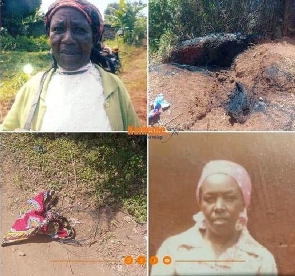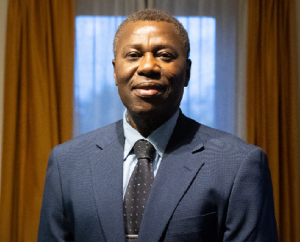On March 8, the world marked international women's day. On this day, there was a reenactment of the achievements and contributions of women, a remembrance of the challenges that women faced, and a focus on gender equality, and human rights, including violence and abuse against women.
But as in past celebrations of the event, there was an omission, and a failure to remember a set of women, mainly African women. A category of women did not get attention or recognition. These women, forgotten and overlooked, were barely mentioned or referenced. These were women sufferers of witch persecution.
These were women who languished and still languish behind a wall of silence, forgetfulness, prejudice, and patriarchy.
To mark this year's International women's day, the Advocacy for Alleged Witches (AfAW) draws attention to African women victims of witchcraft accusations. We remember the case of Mary Njoki and Jane Wambui from Muranga county in Kenya. Both women were attacked, beaten, and subsequently, lynched in February for witchcraft.
No arrest has been made. This tragic incident was attributed to lapses in security. As in many cases of witch persecution, nobody would be held accountable. The perpetrators would likely not be brought to justice. We remember other women who have suffered similar fate and violence, other women victims of a miscarriage of justice, which bloodletting and misogyny.
We also remember the case of Nwasude from Nigeria. Recently an advocate made a post on Facebook recalling her persecution which took place in Delta state decades ago. In her case, a family member was declared missing and she was accused of being responsible.
A local witch hunter, Titi Ugegbe, divined stating that she was a witch, and the one responsible for the disappearance of this relative. A local mob abducted and took her to a village square in Ishieke. They tortured and humiliated her. They forced her to sit on a stool under an orange tree.
Recalling the incident, an advocate who, as a child, witnessed this maltreatment noted in a post that she could feel the pain in the heart of Nwansude and the innocence in her tears: "No privilege of fair hearing was given to her. She dared not plead to be guiltless, or she would be stoned to death.
The magic mirror of Titi Ugegbe' the Isheagu-born witch doctor, could not tell lies. All they wanted to hear was a narrative on how she and her cohorts killed the boy with their evil powers". The mob forced her to confess and admit guilt. As the advocate stated: "Isieke became a center of attraction.
The crowd increased by the day as the news went around. She was brought out every morning to face daily tortures. I wondered if she slept there under the tree or if she was taken inside the house at night. She was wooed, jeered, and beaten by the youths until she started 'confessing'. I heard she acknowledged being a witch. They also said she admitted to killing the boy.
Me, I didn't hear her speak, nor did I see her open her mouth. I only saw her mumbling with her closed lips like a praying Imam".
The narrator recounted how this trial of Nwansude spiraled into torture and persecution of other suspected witches in the community: "She was beaten black and blue by the youths without any regard or respect for her age. They cared not one bit about her ailing health as they lashed out their anger at her.
Strained and exhausted from the inflicted pains and endless wait for help, she struggled to stand up from the stool where she was seated. And as she managed to walk a few steps further, a sudden excitement stirred amidst the crowd. "She is taking us to the homes of her partners in crime".They screamed".
The mob followed her and that was how other vulnerable women fell victim: "The crowd followed behind as she counted and threw her crooked steps ahead of her. Instantly and unexpectedly, some youths among the crowd moved ahead, dashed into a house, and dragged a woman out.
She didn't point at the house, and neither did she mention any name. They only acted on a previous rumor and took advantage of her vulnerable condition. My people, that very day, I witnessed a vicious oppression of the defenseless, the poor, and the childless. With my naive mind, I began to view the aforementioned as the attributes of witchcraft.
"Onyebulu obey, orbulu famous" (If you become a poor person you become a witch). This narrator further stated: "It didn't end that day, They went into other homes to fish out other women. Those who were lucky to have nephews and nieces who stood by their side were safe.
Others whose relatives had already sold out were made to dance to the music. Daily, they were brought out to eat ignominy and excrete shame. Brutalized by their own kinsmen and family members without brotherly feelings and human sympathy.
Indeed I saw the thickness of blood reduced below the opacity of water". Nwansude tried seeking refuge at her maternal home. But her relatives rejected her. Fortunately, a local catholic priest intervened and provided her a shelter where she spent the rest of her life. As this advocate noted:
"Misfortunes happen everywhere, but when it happened inside Isieke, it would be tagged the "handiwork' of witches". The AfAW urges Africans to take the opportunity of International women's day to remember the likes of Mary, Jane, and Nwansude, and so many innocent women who have been attacked, tortured, lynched, or banished for witchcraft in different countries.

Opinions of Saturday, 11 March 2023
Columnist: Leo Igwe















